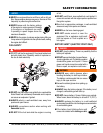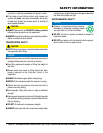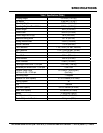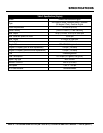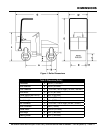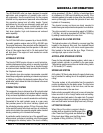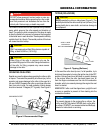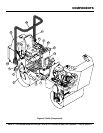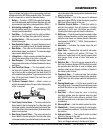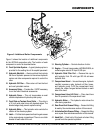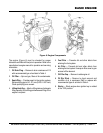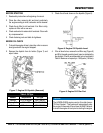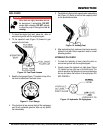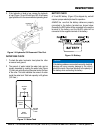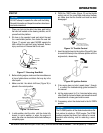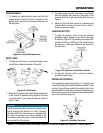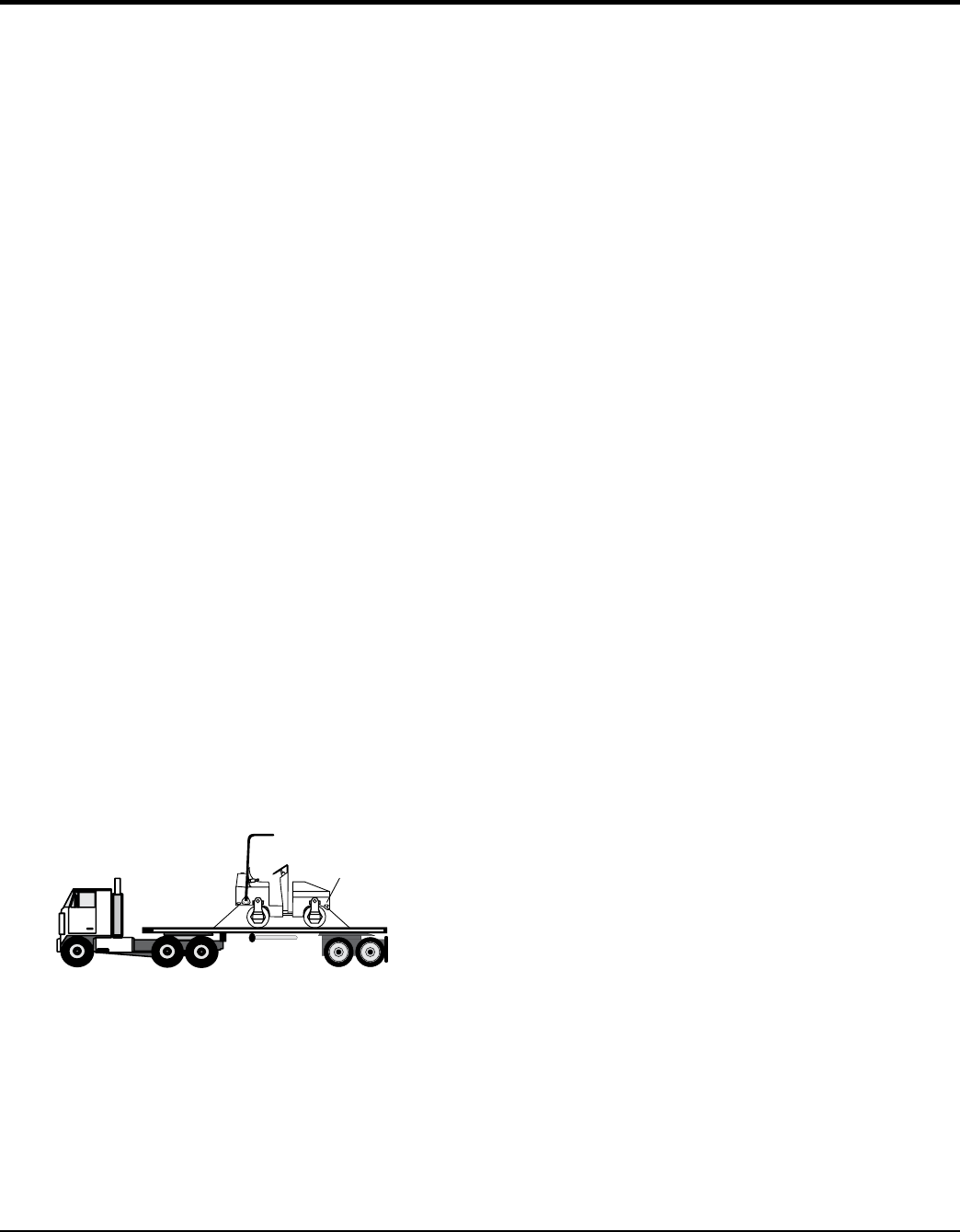
AR13HA/AR13HAR ROLLER (S/N 110301 & UP) • OPERATION AND PARTS MANUAL — REV. #0 (06/22/11) — PAGE 15
COMPONENTS
Figure 4 shows the location of the components and basic
components for the AR13HA compaction roller. The function
of each component or control is described below:
1. Battery — Provides +12VDC to the electrical system,
and is located underneath foot plate. Replace only with
recommended type battery, see specification Table 1.
2. Articulating Locking Bar — Always make sure that
the articulating locking bar is engaged during lifting,
transport and maintenance.
3. Foot Step — To lift yourself onto the roller's platform,
place foot into foot step, then grab hold of hand rail.
4. Ignition Switch — With key inserted, turn clockwise
to start the engine.
5. Rear Sprinkler System — A gravity feed spray bar is
provided for the wetting the roll for asphalt pavement.
6. Rear Roller — This roller is a 30 inch wide steel drum
with beveled edges (no vibration). The beveled edges
help prevent asphalt marring.
7. Lifting Point — Attach a crane or suitable lifting device
to this point when lifting of the roller is required.
8. Rear Scrapper — This adjustable rear scrapper blade
helps prevent the buildup of material between the drum
and frame.
9. Fuel Tank/Fuel Gauge — The fuel capacity of the
fuel tank is 9.5 gallons (36 liters). Read the gauge on
top of the fuel cap to determine if fuel level is low. Fill
with unleaded type gasoline. To gain access to the fuel
tank, tilt the front seat forward. Fuel tank has a spill
containment feature.
10. Tie-Down Transport Point — Attach a chain or
suitable tie-down device to this point when transporting
of the is required.
11. Front Spray Control Valve — This valve controls the
flow of water to the front spray bar. Turn the water valve
to the open position (counterclockwise) to let water flow,
return this valve to the closed position (clockwise) when
water is not required.
12. Rear Spray Control Valve — This valve controls the
flow of water to the rear spray bar. Turn the water valve
to the open position (counterclockwise) to let water flow,
TRANSPORT
TIE-DOWN POINT
return this valve to the closed position (clockwise) when
water is not required.
13. Throttle Control — Pull all the way out to achieved
maximum engine RPM's. To idle the engine, push the
RED stop button inwards all the way.
14. Vibration Control Button — Press this button to
activate the eccentric that will produce a vibration
frequency of 4,400 vpm (vibrations per minute).
Pressing the button again will stop the vibrations.
15. Shift Lever — Push the lever forward to make the roller
travel in a forward direction, pull the lever backward to
make the roller travel in a reverse direction. Maximum
travel speed is 4.8 MPH ( 7.7 KPH). Center position is
neutral, no travel.
16. Hourmeter — Indicates the number hours the unit
has been in use.
17. Water Tank — Remove filler cap and fill with water.
Water tank capacity is 40 gallons (181 liters). To
determine if water level is low, visually inspect water
level gauge (tube) at rear of roller. Add water as
necessary.
18. Roll-Over Bar — This unit may be equipped with a
Roll Over Protection System (ROPS option) to protect
the operator when the roller is used on slopes, open
trenches, sharp turns, slippery surfaces or objects in
the rollers's path of travel.
19. Operator's Seat — A contoured seat that provides
visibility of both front rear drum edges during operation.
NEVER start the roller unless seated in the operator's
seat.
20. Parking Break Lever — Pull the lever upward to set
the parking break. To release the parking break, press
and hold the button on top of the lever and push lever
downward.
21. Seat Belt — When using the roller in working
conditions always have the operator wear the seat
belt. NEVER use the roller without a seat belt. If the
seat belt becomes worn or damaged, have it replaced
immediately.
22. Steering Wheel — Use this wheel to steer the roller.
23. Choke Knob — Used in the starting of a cold engine,
or in cold weather conditions. The choke enriches the
fuel mixture.
24. Hydraulic Motor — This hydraulic motor provides
control for the rear of the roller
25. Documentation Box — Store and maintain Operation,
Parts, and Engine manuals in this box at all times.



